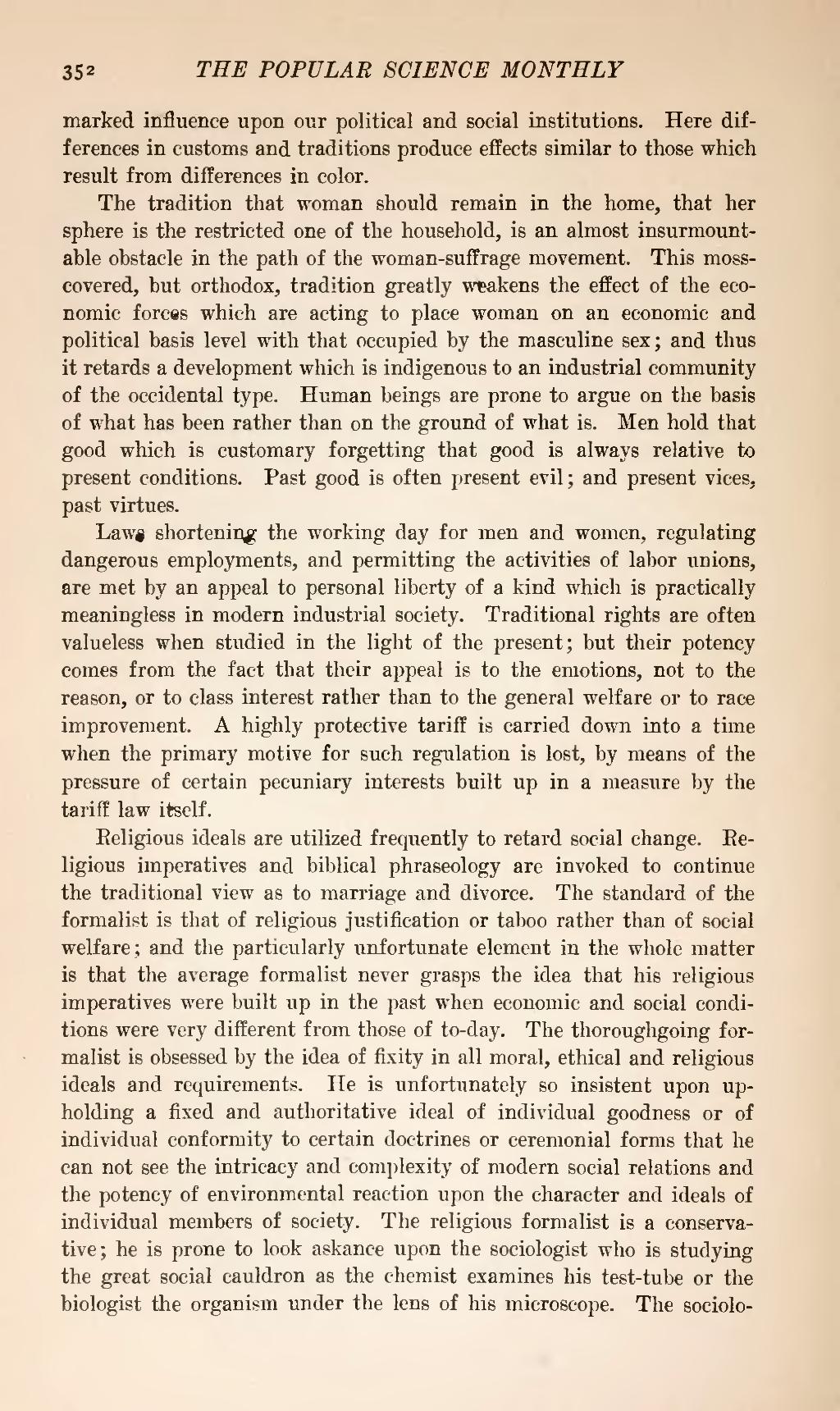marked influence upon our political and social institutions. Here differences in customs and traditions produce effects similar to those which result from differences in color.
The tradition that woman should remain in the home, that her sphere is the restricted one of the household, is an almost insurmountable obstacle in the path of the woman-suffrage movement. This moss-covered, but orthodox, tradition greatly weakens the effect of the economic forces which are acting to place woman on an economic and political basis level with that occupied by the masculine sex; and thus it retards a development which is indigenous to an industrial community of the occidental type. Human beings are prone to argue on the basis of what has been rather than on the ground of what is. Men hold that good which is customary forgetting that good is always relative to present conditions. Past good is often present evil; and present vices, past virtues.
Laws shortening the working day for men and women, regulating dangerous employments, and permitting the activities of labor unions, are met by an appeal to personal liberty of a kind which is practically meaningless in modern industrial society. Traditional rights are often valueless when studied in the light of the present; but their potency comes from the fact that their appeal is to the emotions, not to the reason, or to class interest rather than to the general welfare or to race improvement. A highly protective tariff is carried down into a time when the primary motive for such regulation is lost, by means of the pressure of certain pecuniary interests built up in a measure by the tariff law itself.
Religious ideals are utilized frequently to retard social change. Religious imperatives and biblical phraseology are invoked to continue the traditional view as to marriage and divorce. The standard of the formalist is that of religious justification or taboo rather than of social welfare; and the particularly unfortunate element in the whole matter is that the average formalist never grasps the idea that his religious imperatives were built up in the past when economic and social conditions were very different from those of to-day. The thoroughgoing formalist is obsessed by the idea of fixity in all moral, ethical and religious ideals and requirements. He is unfortunately so insistent upon upholding a fixed and authoritative ideal of individual goodness or of individual conformity to certain doctrines or ceremonial forms that he can not see the intricacy and complexity of modern social relations and the potency of environmental reaction upon the character and ideals of individual members of society. The religious formalist is a conservative; he is prone to look askance upon the sociologist who is studying the great social cauldron as the chemist examines his test-tube or the biologist the organism under the lens of his microscope. The sociolo-

